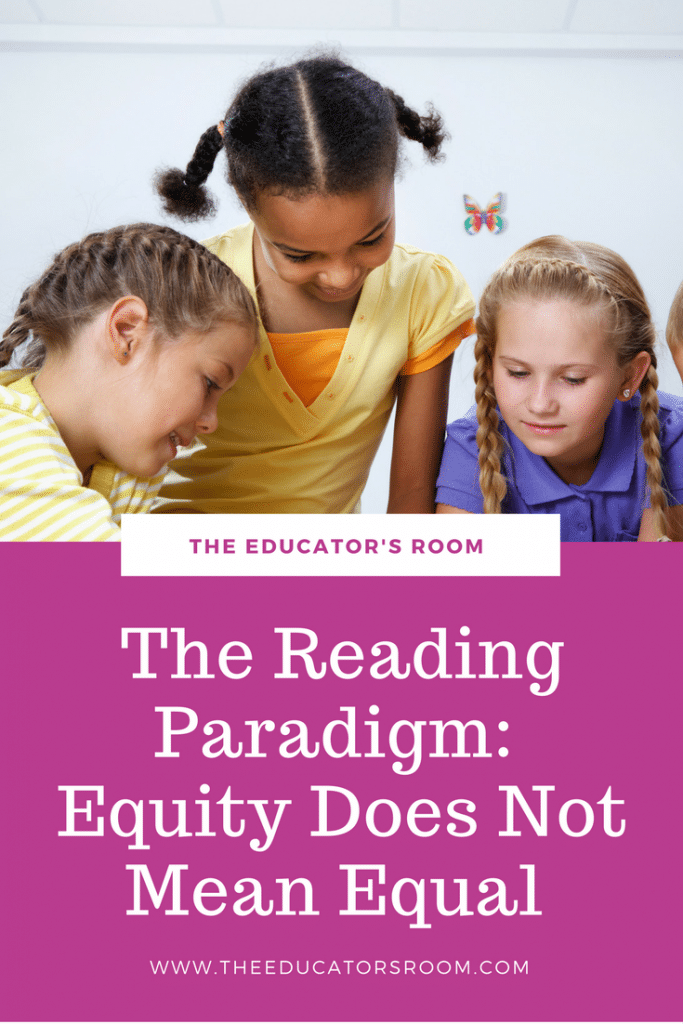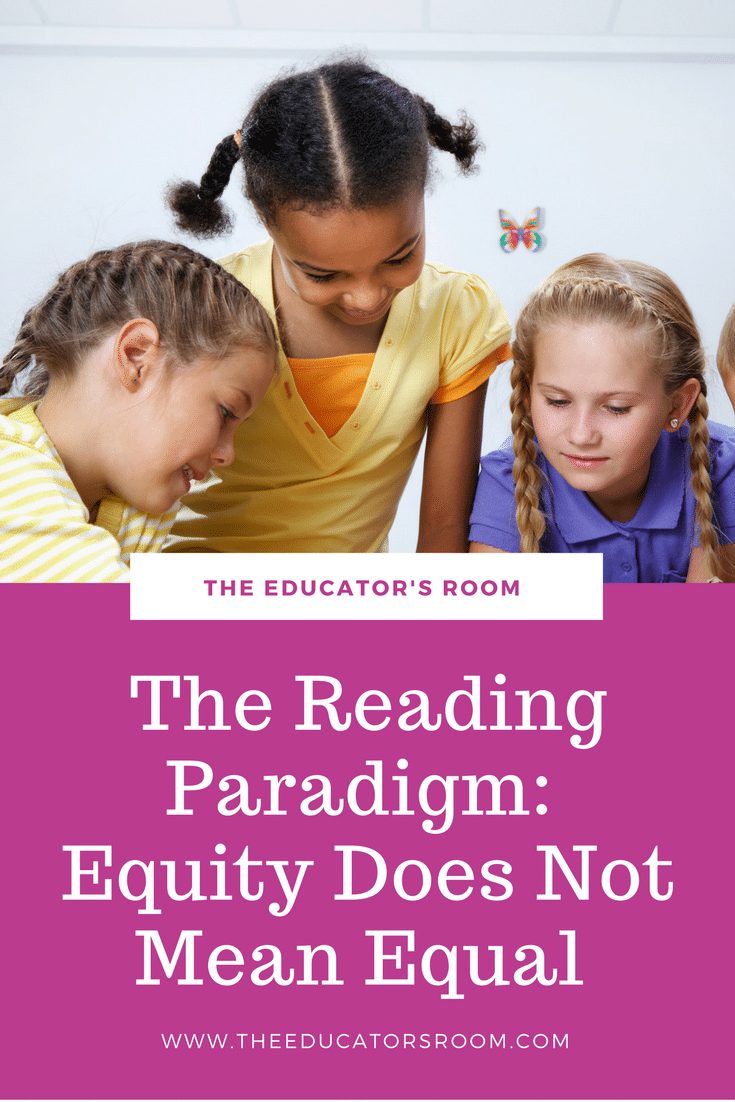One of the qualities of an effective teacher is to be fair and equitable. But what does that really mean? How can you be fair and equitable to every single student in your classroom? As a child, I’m sure if your sibling got a scoop of ice cream, you wanted a scoop of ice cream. Or if your sibling got a car at 16, then you felt entitled to that same privilege at 16. That’s just fair, right?
Some teachers think the same principle applies in their classrooms. If I give Bobby this, I must give Suzy this. In some instances, this theory may prove true. However, when it comes to reading instruction, this is false. You must realize that equity does not mean equality when it comes to instructing a student on how to become an effective reader.
Early in my career, I thought that when I was teaching reading (especially when it came to small groups) I should meet with each group the same amount of time. I must meet with every group every day just like the teacher manual beautifully planned out. I will meet with my low group, my average group, and my high group and all will be well with the world.
But the reality was different.
The reality of reading groups
First, most reading teachers know that there is no clear-cut low, average, and high group. It’s more like high, average-high, average-low, low, and low-low. So those 3 groups you are supposed to meet with every day – out the window.
Secondly, now there are 5 groups, not 3. So, how am I supposed to meet with all 5 groups every day? Well, despite what the district reading leader and the principal (who might I add hasn’t been in a classroom for over 15 years are telling you) the answer to that question is – you don’t!
Equal means giving each child the same exact prescription, but equitable would be giving each student what they need. Part of being an effective teacher is trying to figure out this complex balance of what each child needs to be successful. If you know that Bobby will be successful with one hug a day, and Suzy will be successful with two hugs a day, there is nothing wrong with giving Bobby one hug and Suzy two hugs if they both will be successful. This same principle applies to your reading instruction.
When it comes to small group reading instruction, you can meet with some groups more than others. What does equitable look like in my classroom? My lower groups need me every day, therefore, I meet with them every day. The average and high groups meet with me as needed. Stop feeling guilty. Jump in there and find the balance that works in your classroom.
How do you make sure you’re giving equitable reading instruction?





